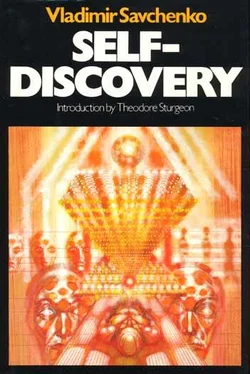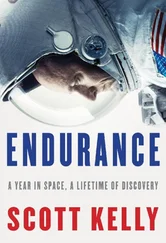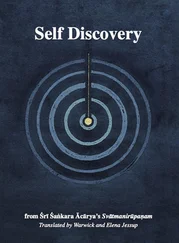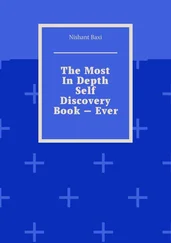Vladimir Savchenko - Self-discovery
Здесь есть возможность читать онлайн «Vladimir Savchenko - Self-discovery» весь текст электронной книги совершенно бесплатно (целиком полную версию без сокращений). В некоторых случаях можно слушать аудио, скачать через торрент в формате fb2 и присутствует краткое содержание. Город: NEW YORK — LONDON, Год выпуска: 1979, Издательство: MACMILLAN PUBLISHING CO., INC; COLLIER MACMILLAN PUBLISHERS, Жанр: Фантастика и фэнтези, на английском языке. Описание произведения, (предисловие) а так же отзывы посетителей доступны на портале библиотеки ЛибКат.
- Название:Self-discovery
- Автор:
- Издательство:MACMILLAN PUBLISHING CO., INC; COLLIER MACMILLAN PUBLISHERS
- Жанр:
- Год:1979
- Город:NEW YORK — LONDON
- ISBN:нет данных
- Рейтинг книги:3 / 5. Голосов: 1
-
Избранное:Добавить в избранное
- Отзывы:
-
Ваша оценка:
- 60
- 1
- 2
- 3
- 4
- 5
Self-discovery: краткое содержание, описание и аннотация
Предлагаем к чтению аннотацию, описание, краткое содержание или предисловие (зависит от того, что написал сам автор книги «Self-discovery»). Если вы не нашли необходимую информацию о книге — напишите в комментариях, мы постараемся отыскать её.
Self-discovery — читать онлайн бесплатно полную книгу (весь текст) целиком
Ниже представлен текст книги, разбитый по страницам. Система сохранения места последней прочитанной страницы, позволяет с удобством читать онлайн бесплатно книгу «Self-discovery», без необходимости каждый раз заново искать на чём Вы остановились. Поставьте закладку, и сможете в любой момент перейти на страницу, на которой закончили чтение.
Интервал:
Закладка:
“Let’s look at scientific information. It is also real, and objective — but it’s abstract. In essence, it’s the universalized experience of the activity of humanity. That’s why it’s applicable in many life situations, and that’s also why its effect on life is so great. And a reverse connection exists here with life, too, even though it is not an individual one for each and every person, but a general one: science solves life’s problems, thus changing life — and a changed life sets new problems for science. But still, the action of science on life in general and on man in particular can be either positive or negative. There are many examples to support this. And there is another problem: science is hard for the average man to comprehend. Yes, it’s hard. All right, if you think about the same thing all the time, sooner or later, you’ll come up with the answer. The important thing is to think systematically.”
He was distracted by sobbing from below. He looked down: his companion, never taking her eyes from the book, was dabbing her wet eyes with a handkerchief. “What are you reading?”
She looked up angrily and showed him the cover: Remarque’s Three Comrades.
“The hell with them,” she said and lost herself in the book again. “Hm… a tubercular girl, loving and sensitive, is dying. And my well — fed, healthy neighbor feels for her, empathizes. I guess there’s no point beating around the bush. The information of art is it! Anyway, its general direction is intended for the best that is in man. Over the millennia, art has developed the highest quality information about people: thoughts, descriptions of refined spiritual actions, strong and noble feelings, colorful personalities, beautiful and wise actions…. All this has been working from the beginning of time to develop in people an understanding of each other and of life, to correct their morals, to awaken thoughts and feelings, and to eradicate the animal baseness of the spirit. And this information gets through — to be precise, it is marvelously encoded, couldn’t be better, to function in the computer called Man. In this sense, neither daily information nor scientific information can come close to artistic information.”
The train, passing through Dneprovsk’s suburbs, slowed down. His companion set aside her book and started pulling out her suitcases from under the seats. The man still lay on his berth, lost in thought:
“Yes, but how about effectiveness? People have been trying for millennia — of course, until the middle of the last century, art was only accessible to the few. But then technology took over: mass printing, lithography, expositions, records, movies, radio, television — art information is available to everyone. For a contemporary man the volume of information that he obtains from books, movies, radio, magazines, and TV is comparable to life information and certainly much greater than science information. And so? Hm… the effect of art is not measured technically and is not determined through experiments. All that we have to do is compare the actions, say, of science and the arts during the last fifty years. God, there can be no comparison!”
The train pulled into the station, into the crowd of waiting friends and relatives, porters and ice cream vendors. The man jumped down from the berth, pulled down his backpack, and folded his blue raincoat over his arm. His companion was still struggling with her heavy suitcases.
“My, how much luggage you have! Let me help,” he offered, picking up the largest one.
“No, thanks.” The woman quickly sat on one suitcase, flinging a plump leg over another, and clutched a third with both hands. “Oh, no, thank you! No, thanks!”
She looked up at him with a face that no longer had any pleasantness about it. Her cheeks were not plump but blowsy, and her eyes, now watery instead of blue, were hostile. There were no eyebrows, just two thin stripes of pencil marks. He could tell that one move from him and she would start screaming.
“Excuse me!” He let go and left. He was disgusted.
“There you go: an illustration of the comparative effects of daily information and art information!” he thought, angrily striding through the station square. “Lots of people could have come from distant parts: salesman, Party worker, athlete, fisherman… but no, she thought the worst, suspected me of vile intentions! It’s the principle of getting by: better not trust them than be mistaken. And don’t we make a much greater mistake by adhering to this principle?” In the train he had been thinking because there was nothing else to do. Now he was thinking to calm down, and still about the same thing. “Of course, if you tell about a man in a book or on screen — people will understand him, believe in him, forgive his drawbacks and love him for his good points. But it’s much more complicated and prosaic in real life. Why blame the little lady — I’m just as bad myself. For a time, I didn’t believe my own father. I loved him, but I didn’t believe him. I didn’t believe that he had fought in revolutions, in the Civil War, that he served under Chapayev, that he had met Lenin. It all began with the movie Chapayev: my father wasn’t in it! There was Chapayev and all the other certified heroes — they declaimed colorful, curt slogans with powerful voices — and Dad wasn’t there! And anyway, how could my Dad be a Chapayev man? He didn’t get along with mother. He spoke in a wavering voice, caused by his ill — fitting dentures, which he kept in a glass overnight. He mispronounced words (not like in the movies). And he had been arrested in 1937. He used to tell the neighbor women over the back fence how during Kerensky’s time he was forced, because of Bolshevik agitation, to stand two hours at attention in full battle gear on the breastwork of a trench. He said that he brought silver coins from the soldiers at the front to Lenin in the Smolny Institute for the revolution’s coffers. He talked about how, condemned to death by the cossacks, he sat in a cellar… and the local women oohed and aahed, clasping their hands: ‘Our Karpych is a hero — ah! ah! And I would laugh at him and not believe him. I knew exactly what heroes were like — because I watched movies and listened to the radio.”
He frowned at these memories.
“It wasn’t really me. But the important point is that it was — but it looks like there is a hitch in the great method of transferring information via art. People watch a movie or a play, read a book and say: ‘I like it… and go on living just as before. Some live well, some not badly, and the rest awfully. Art historians and critics often find a flaw in the consumers of the information: the public is foolish, the readers aren’t ready, and so on. To accept that I would have to admit that I’m a fool and that I’m not ready either. No, I don’t agree! And anyway, blaming things on the people’s dullness and ignorance — that’s not a constructive approach. People are capable of understanding and realization. Most of them are not dullards or ignoramuses. So it would be better to seek the flaw in the method — especially since I need that method for my experimental work.”
He saw a telephone booth and he stared at it dully: was he supposed to do something in that object? He remembered. He sighed, entered the booth, dialed the number of the New Systems Laboratory — Waiting for an answer, his heart began beating harder and his throat went dry. “I’m nervous and that’s bad.” There was nothing but long ringing. Then, with second thoughts, he called the evening duty phone at the institute.
“Could you help me reach Krivoshein? Is he on vacation?” “Krivoshein? He’s… no, he’s not on vacation. Who’s calling?” “If he should show up at the institute today, please tell him that… Adam is here.” “Adam? No last name?” “He knows. Please don’t forget.” “All right. I won’t.”
Читать дальшеИнтервал:
Закладка:
Похожие книги на «Self-discovery»
Представляем Вашему вниманию похожие книги на «Self-discovery» списком для выбора. Мы отобрали схожую по названию и смыслу литературу в надежде предоставить читателям больше вариантов отыскать новые, интересные, ещё непрочитанные произведения.
Обсуждение, отзывы о книге «Self-discovery» и просто собственные мнения читателей. Оставьте ваши комментарии, напишите, что Вы думаете о произведении, его смысле или главных героях. Укажите что конкретно понравилось, а что нет, и почему Вы так считаете.












